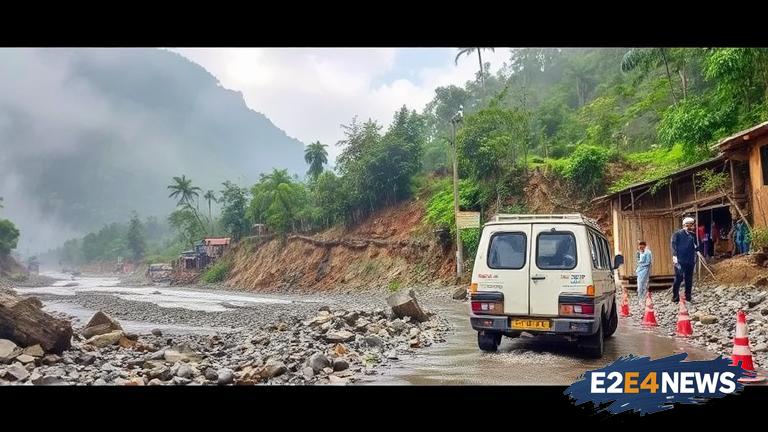The Jammu region has been experiencing heavy rainfall over the past few days, resulting in landslides and flash floods in several areas. The Srinagar highway, a crucial route connecting the region to the rest of the country, has been closed due to landslides at Ramban. The landslides have caused significant damage to the road, making it impassable for vehicles. The closure of the highway has disrupted traffic and daily life, with many commuters and travelers stranded. The authorities have advised people to avoid traveling to the area until the situation improves. The heavy rainfall has also caused power outages and waterlogging in several areas, adding to the misery of the residents. The Jammu and Kashmir government has issued a warning to people living in low-lying areas, asking them to be prepared for evacuation if necessary. The Indian Meteorological Department has predicted more rainfall in the region over the next few days, which could exacerbate the situation. The authorities are working to clear the debris and restore traffic on the highway, but it may take some time. In the meantime, alternative routes are being explored to facilitate the movement of people and goods. The heavy rainfall has also affected agricultural activities in the region, with crops being damaged due to waterlogging. The government has announced relief measures for the affected farmers, including compensation for damaged crops. The situation is being closely monitored by the authorities, who are working to mitigate the effects of the heavy rainfall. The Jammu and Kashmir disaster management authority has been activated to coordinate relief efforts. The National Disaster Response Force (NDRF) has also been deployed to assist in the relief operations. The heavy rainfall has also raised concerns about the safety of the dams and reservoirs in the region, with the authorities closely monitoring the water levels. The situation is expected to improve over the next few days, but the authorities are prepared for any eventuality. The people of the region are advised to remain vigilant and follow the instructions of the authorities. The government has also announced plans to undertake long-term measures to prevent such disasters in the future, including the construction of flood-control structures and the implementation of early warning systems. The heavy rainfall has once again highlighted the need for effective disaster management and mitigation strategies in the region. The authorities are working to learn from the experience and improve their response to such situations in the future. The people of the region are hoping for a speedy recovery and a return to normal life as soon as possible.
